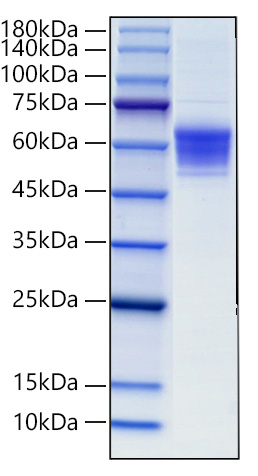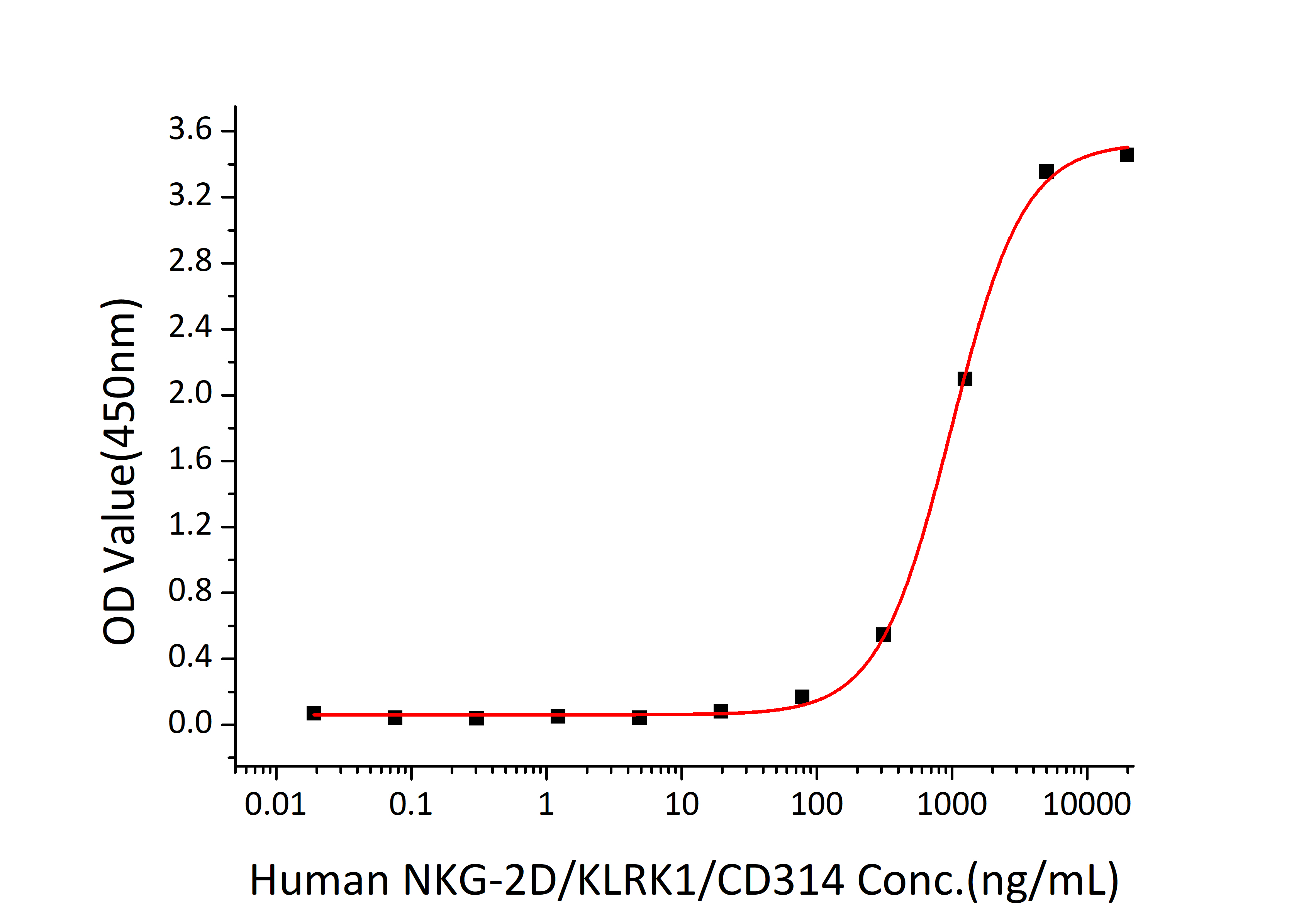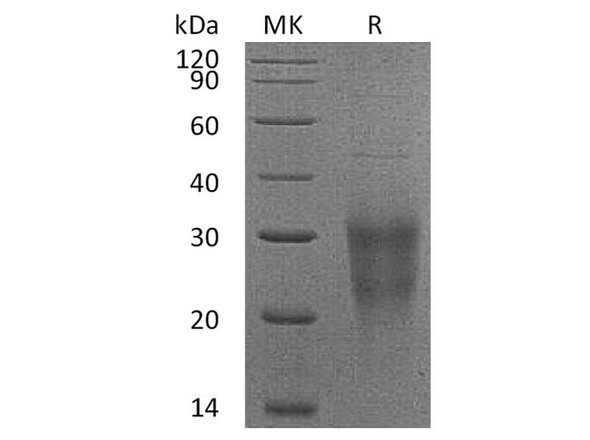Description
Recombinant Human NKG-2D/KLRK1/CD314 Protein
The Recombinant Human NKG-2D/KLRK1/CD314 Protein is a biologically active recombinant protein that plays a significant role in various cellular processes and signaling pathways in human biology. This protein is widely employed in immunological research, cell biology studies, protein-protein interaction analyses, and therapeutic development, providing researchers with a reliable tool for investigating NKG-2D/KLRK1/CD314 function and its implications in health and disease.
This product (SKU: RPCB1877) is produced using HEK293 cells and features a N-hFC tag for convenient detection and purification. The protein exhibits a calculated molecular weight of 42.61 kDa with an observed molecular weight of 50-65 kDa under denaturing conditions, achieving ≥ 85% as determined by SDS-PAGE.. Functional bioactivity has been validated through rigorous quality control assays, confirming its suitability for demanding research applications.
Key Features
| High Purity by Affinity Chromatography | |
| Mammalian & Bacterial Expression Systems | |
| High lot-to-lot consistency via strict QC |
| Product Name: | Recombinant Human NKG-2D/KLRK1/CD314 Protein |
| SKU: | RPCB1877 |
| Size: | 10 μg , 20 μg , 50 μg , 100 μg |
| Reactivity: | human |
| Synonyms: | KLR, CD314, NKG2D, NKG2-D |
| Tag: | N-hFC |
| Expression Host: | HEK293 cells |
| Calculated MW: | 42.61 kDa |
| Observed MW: | 50-65 kDa |
| Gene ID: | 22914 |
| Protein Description: | High quality, high purity and low endotoxin recombinant Recombinant Human NKG-2D/KLRK1/CD314 Protein (RPCB1877), tested reactivity in HEK293 cells and has been validated in SDS-PAGE.100% guaranteed. |
| Endotoxin: | < 0.1 EU/μg of the protein by LAL method. |
| Purity: | ≥ 85% as determined by SDS-PAGE. |
| Formulation: | Lyophilized from a 0.22 μm filtered solution of PBS, pH 7.4. |
| Bio-Activity: | Measured by its binding ability in a functional ELISA. Immobilized Human MICA(RPCB0286) at 2 μg/mL (100 μL/well) can bind Human NKG-2D/KLRK1/CD314 (RPCB1877) with a linear range of 0.005-0.98 μg/mL. |
| Reconstitution: | Centrifuge the vial before opening. Reconstitute to a concentration of 0.1-0.5 mg/mL in sterile distilled water. Avoid vortex or vigorously pipetting the protein. For long term storage, it is recommended to add a carrier protein or stablizer (e.g. 0.1% BSA, 5% HSA, 10% FBS or 5% Trehalose), and aliquot the reconstituted protein solution to minimize free-thaw cycles. |
| Storage: | Store at -20℃.Store the lyophilized protein at -20℃ to -80 ℃ up to 1 year from the date of receipt. After reconstitution, the protein solution is stable at -20℃ for 3 months, at 2-8℃ for up to 1 week. |
NKG2D is a transmembrane protein belonging to the CD94/NKG2 family of C-type lectin-like receptors, also known as KLRK1, CD314, D12S2489E, KLR and killer cell lectin like receptor K1. NKG2D itself forms a homodimer whose ectodomains serve for ligand binding. NKG2D is a major recognition receptor for the detection and elimination of transformed and infected cells as its ligands are induced during cellular stress, either as a result of infection or genomic stress such as in cancer. In NK cells, NKG2D serves as an activating receptor, which itself is able to trigger cytotoxicity. The function of NKG2D on CD8+ T cells is to send co-stimulatory signals to activate them.








